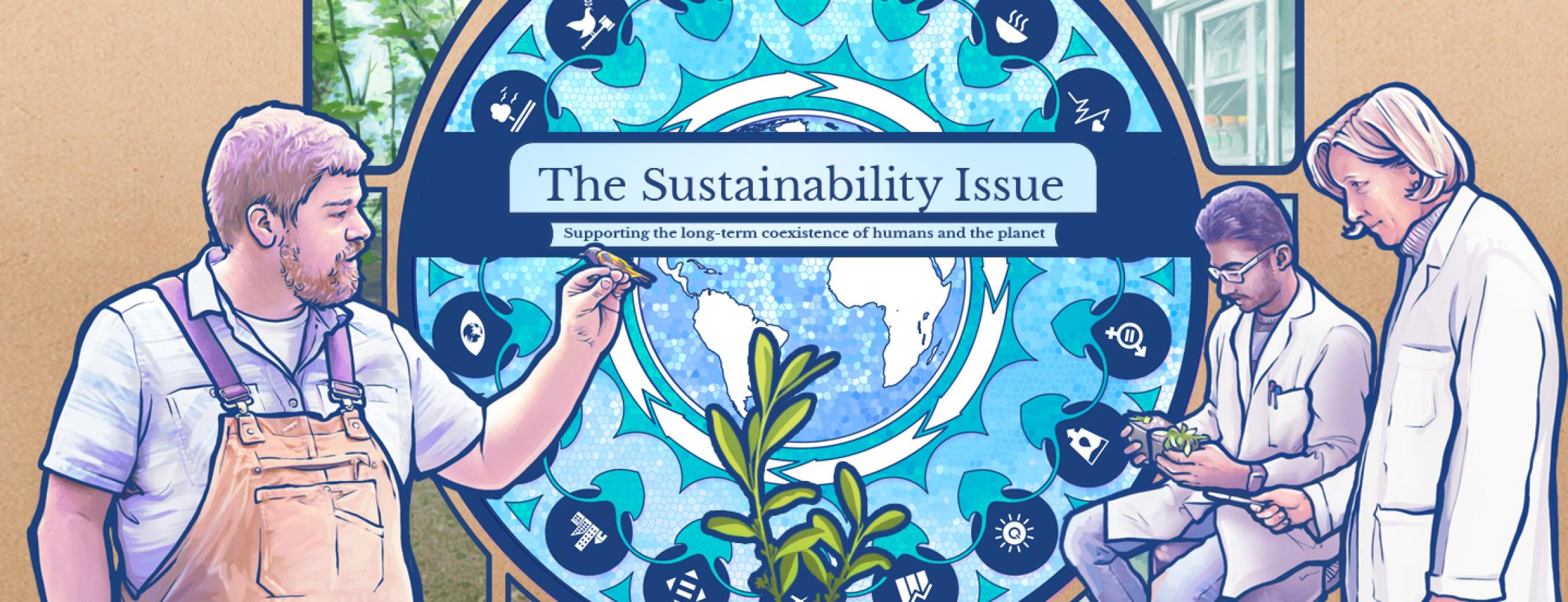Humans have an impact on our planet at a scale like no other species. With global population approaching 8 billion humans to feed, clothe, house, and entertain, that impact continues to grow. Unchecked, humans have the potential to pillage the Earth and its resources in ways that could, for example, lead to increased poverty and inequality, loss of important habitats, unsafe drinking water, and could eventually degrade our environment until it can no longer support our basic needs. We’ve been aware of this potential for decades and only through concerted efforts and human ingenuity can we break out of this pattern and ensure a sustainable future.
We all have heard the phrase “reduce, reuse, recycle” and it’s an important component of our efforts, but we need to do more than just use the blue recycle bags at Nittany Lion tailgates and turn off the water when brushing our teeth. We need innovative new approaches that allow us to continue to develop globally in a sustainable way. This is where research comes in.
In 2015, on the seventieth anniversary of the organization, the United Nations (UN) adopted the 2030 Agenda for Sustainable Development. This agenda set 17 Sustainable Development Goals (SDGs) focused on people, planet, prosperity, peace, and partnership, that are designed to “shift the world onto a sustainable and resilient path.” The goals range from ending poverty and hunger to combatting climate change to protecting ecosystems and resources to fostering sustainable industrialization through innovation. The ambitious plan relies on all countries acting in collaborative partnership to implement and secure our planet. The goals work together to try to balance the economic, social, and environmental dimensions of sustainable development so that we can continue to enjoy life on Earth long into the future.
In the Eberly College of Science we house experts whose research directly or sometimes, indirectly, supports these goals. Our Sustainability Council seeks to incorporate the UN SDGs and the concepts of global sustainability and resilience more fully into our teaching, research, outreach, and service activities, to help implement the University’s foundational principle of Ensuring a Sustainable Future and its thematic priority of Stewarding Our Planet’s Resources, and to position the college as a leader in taking actions that build a more sustainable and just future at Penn State and beyond.
Here, we would like to highlight a few examples of researchers in the college whose work is contributing to the SDGs.

Jesse Lasky
Associate Professor
Department of Biology
SDG 2: End hunger, achieve food security and improved nutrition and promote sustainable agriculture
Lasky is part of an interdisciplinary team of Penn State professors that has received $3 million from Open Philanthropy to study food resilience in the face of catastrophic global events.

Joey Cotruvo
Associate Professor
Department of Chemistry
SDG 12: Ensure sustainable consumption and production patterns
Cotruvo studies a protein, called lanmodulin, that could help detect, target and collect the rare-earth metals used in smartphones from the environment and from complex environmental samples like acid mine waste.

Ana Matković
Associate Teaching Professor
Department of Astronomy and Astrophysics
SDG 11: Make cities and human settlements inclusive, safe, resilient and sustainable
Students in Matković’s class carry out a research project to support the State College Borough’s efforts to mitigate light pollution downtown.

Jordan Bisanz
Assistant Professor
Department of Biochemistry and Molecular Biology
SDG 3: Ensure healthy lives and promote well-being for all at all ages
Bisanz aims to understand how the structure and function of the microbiome—the communities of microorganisms in and on us—impacts health and disease.

Jessica Conway
Associate Professor
Departments of Mathematics and Biology
SDG 3: Ensure healthy lives and promote well-being for all at all ages
Conway investigate the interplay of viral responses, immune responses, and curative or other treatments, with recent emphasis on HIV.
